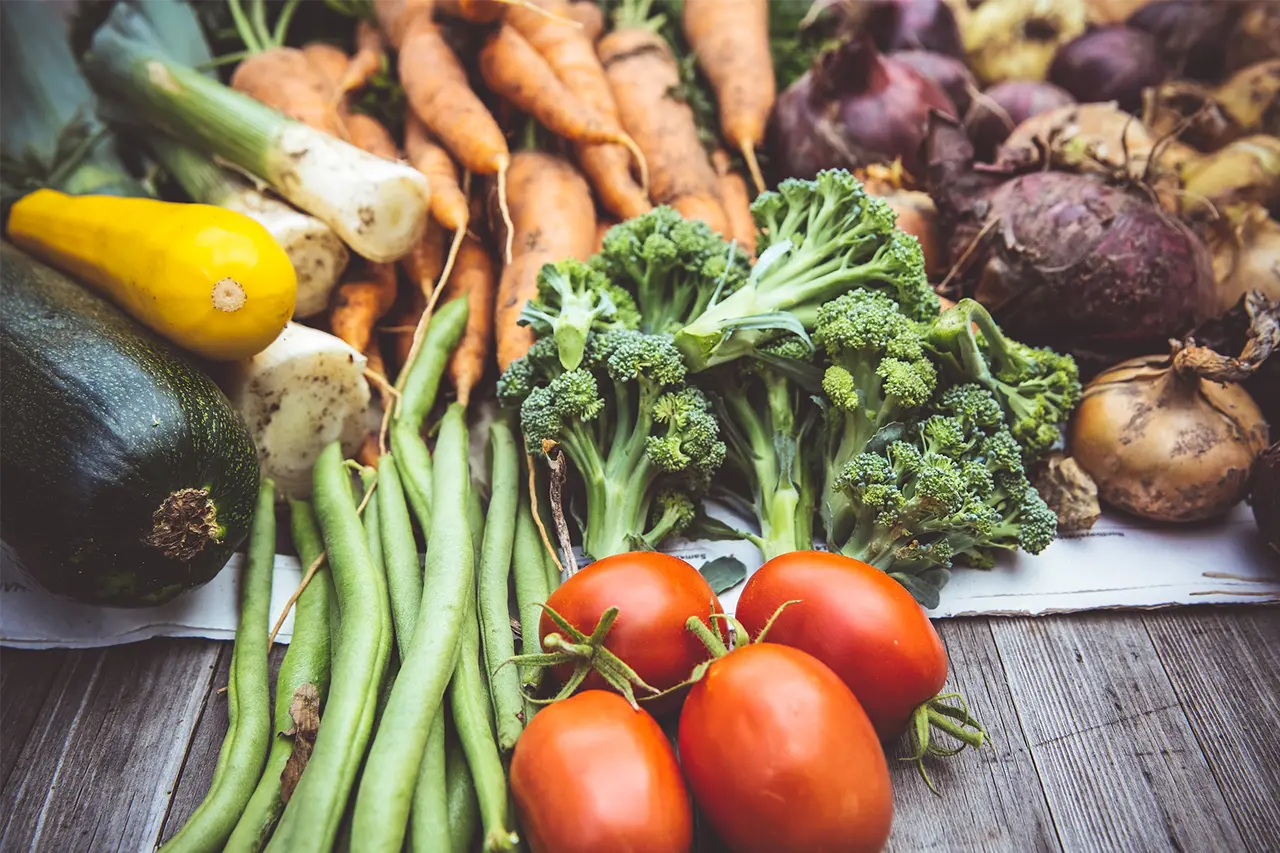Survey: Appetite for meat inhibits sustainable dietary change
SINUS study on World Vegetarian Day on Oktober 1st. in cooperation with YouGov

For some, an everyday life without meat and sausage is unimaginable, while for others a meat-free diet is a matter of conscience or the key to combating climate change. On the occasion of World Vegetarian Day on Sunday, 01 October, SINUS-Institut, together with the international data & analytics group YouGov, asked people in Germany in a representative online survey how great the potential of vegetarian nutrition was in Germany, why people did not remove meat and fish from their menu, and what meat-free nutrition experiments Germans would engage in.
Half of the Germans (51%) make sure to eat little or no meat or fish in their diet: According to their own statements, 38% of respondents follow a flexitarian diet (i.e. infrequent or irregular consumption of meat or fish), 10% a vegetarian or pescetarian diet and 3% are vegan (i.e. no animal products). However, the largest group, 46%, are those who eat meat and fish frequently.
Will more people be vegetarian and vegan in the future? Greatest potential among under 40s and in progressive milieus
In the future, the importance of vegetarianism and veganism is likely to increase. Among those who currently do not follow a vegetarian or vegan diet, i.e. are omnivorous, a quarter (24%) can imagine a vegetarian lifestyle. A vegan diet is an option for 14% of this group. Younger people are particularly open to a meat-free diet: 42% of omnivores under 40 can imagine giving up meat and fish completely. Veganism is not ruled out by 27% of the under-40 omnivores.
The curiosity about meat-free meals is clearly higher than the actual willingness to fundamentally change one's diet. Thus, half of the non-vegetarians are generally curious to try vegetarian dishes (50%) or are in favour of one vegetarian day per week in canteens or restaurants (48%).
Biggest barriers for conversion to vegetarianism: taste, habit, health
People who eat meat and fish cite a variety of reasons why they do not want to give it up. The most frequently cited reasons are the indispensable taste of meat and fish (48%), dietary habits due to tradition or culture (32%) and concerns about unhealthy malnutrition (25%). Other reasons are decisive only for a minority, e.g. lack of knowledge about vegetarianism, social factors such as the reaction of the environment to one's own dietary restrictions, or possible challenges in everyday life due to the change of diet.
Environmental aspects of a meat-reduced diet are somewhat more relevant to people who eat meat than the personal benefit: Thus, 56% agree that it would be good for climate protection if everyone ate less meat, sausage and fish, whereas only 42% think that less of these foods would be good for them personally.
The fact that nutrition is an expression of lifestyle and values is shown by the mapping of the results in the Sinus-Milieus social model. On this "map of society", people are divided into ten "groups of like-minded people" based on their lifeworld and social situation. Manfred Tautscher, Managing Director of SINUS-Institut, explains: "The people who are more modern in a socio-cultural sense are also more open to a meat-free diet. While the expeditive milieu, the urban creative bohemians, is always on the lookout for experiments and understands meatless nutrition as a trendy lifestyle, the nostalgic middle-class milieu is the least willing to embrace vegetarianism and veganism. For this harmony-oriented centre of society, meat is a natural part of the diet and virtually a German cultural asset. Here, one feels increasingly under social pressure to become a vegetarian. People are afraid that the schnitzel will now be taken away from them, which definitely makes room for populist success.
Non-vegetarians are also concerned about animal welfare
Concerns about animal welfare also bother meat eaters, although this does not lead to a change in diet. A clear majority of all Germans (82%) agree that animals should always be kept in a species-appropriate manner, even if this makes animal products more expensive. A slight majority (51%) is confident that consumers can ultimately influence how animals are kept. Germans have a very negative view of working conditions in the meat industry: 60% find them repulsive. Predictably, vegetarians agree more strongly with these statements than non-vegetarians.
Curiosity about meat substitutes, lab meat and insects?
Meatless nutrition is an important driver of innovation in the food sector, as the increasing variety of meat substitutes in supermarkets or restaurants shows. But what experiences have Germans had with such foods? Just over half of those surveyed (55%) have already eaten vegetarian sausage, schnitzel or minced meat. 11% have not yet done so, but are open to trying. Just under three out of ten (28%) would not like to try meat substitutes in the future either.
Research is currently being done on ways to artificially breed meat in the laboratory. This would make it possible to eat meat without killing animals. A good third of respondents (36%) would eat such "lab meat", but a good half (53%) rule this out. Insects are also praised as a promising alternative to meat. 41% of Germans assume that bugs and co. will play a greater role in our diet in the future.
Comparison with Austria: Slightly higher awareness of meat-reduced diets and animal welfare
Wiener Schnitzel, Tafelspitz or Beuschel - meat plays a very important role in Austrian cuisine. This may be the reason why awareness of meat-reduced nutrition and animal welfare is somewhat higher among our neighbours, but the willingness to give up meat is less pronounced. This is what SINUS partner INTEGRAL found out for Austria. While 45% of Austrians say they eat meat, sausage and fish only rarely or irregularly (vs. 38% of Germans), only 6% live a vegetarian or pescetarian lifestyle (vs. 10% in Germany). This interpretation is also supported by the fact that Austrian omnivores are somewhat more curious about vegetarian dishes than the German ones (55% in AT vs. 50% in DE). Also, 89% of all respondents agree that animals should always be kept in a species-appropriate manner, even if products cost more as a result (vs. 82% in DE).
Methodological information
The data used is based on an online survey based on the Omnibus by YouGov Germany GmbH, in which 2,008 people participated between August 16th and 28th, 2023. The results were weighted and are representative of the German population aged 18 to 75.
About SINUS-Institut
SINUS Markt- und Sozialforschung GmbH, with offices in Heidelberg and Berlin, has specialised in psychological and social science research and consulting for over 40 years. SINUS develops strategies for companies and institutions that use socio-cultural change as a success factor.
A key tool is the Sinus-Milieus model - a model of society and target groups that summarises people according to their lifestyles in "groups of like-minded people". For decades, the Sinus-Milieus have been one of the best-known and most influential segmentation approaches in the German-speaking market and are available for over 48 countries.
SINUS cooperates closely with its sister companies INTEGRAL Markt- und Meinungsforschung in Vienna, Austria, and OPINION Market Research & Consulting, Nuremberg, Germany (INTEGRAL-SINUS-OPINION Group).
More information on SINUS-Institut at www.sinus-institut.de.
Press contact
SINUS Markt- und Sozialforschung GmbH
Tim Gensheimer
Phone: +49 (0)6221 – 80 89 – 60
E-Mail: presse@sinus-institut.de
About YouGov
YouGov is an international online research data and analytics technology group. Our mission is to offer unparalleled insight into what the world thinks. Our innovative solutions help the world's most recognised brands, media owners and agencies to plan, activate and track their marketing activities better.
With operations in the UK, the Americas, Europe, the Middle East, India and Asia Pacific, we have one of the world's largest research networks.
At the core of our platform is an ever-growing source of consumer data that has been amassed over our twenty years of operation. We call it Living Data. All of our products and services draw upon this detailed understanding of our 20 million registered panel members to deliver accurate, actionable consumer insights.
As innovators and pioneers of online market research, we have a strong reputation as a trusted source of accurate data and insights. Testament to this, YouGov data is regularly referenced by the global press, and we are the second most quoted market research source in the world.
YouGov. Living Consumer Intelligence.
More information on YouGov at yougov.de
Press contact
YouGov Deutschland GmbH
Anne-Kathrin Sonnenberg, PR Manager
Phone: +49 (0) 221 420 61 – 444
E-Mail: presse@yougov.de

